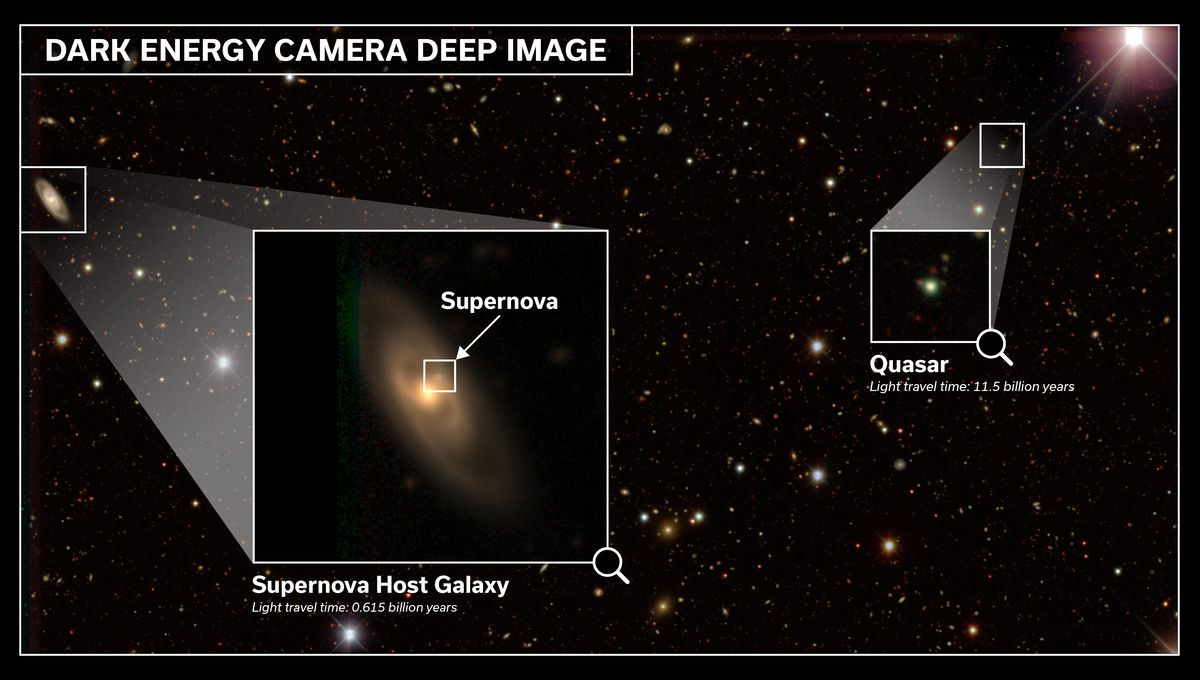
For a quarter of a century, we have known that the universe is experiencing an accelerated expansion. We call the culprit dark energy, but we are yet to know its true nature. In the current best model, dark energy is a cosmological constant – its value at every point in space and time is always the same. New data from an incredible survey suggest that this idea could be challenged.
The Dark Energy Survey (DES) used data from 1,499 supernovae of a particular kind called Type Ia, whose luminosity is always the same. This allows astronomers to measure the distance of the galaxies that host these events with exquisite detail. The data can be used to estimate the ‘w’ parameter.
For a cosmological constant, this parameter should be equal to -1. The DES data accept that this value is possible according to the behavior of all those galaxies. But a value that suits the numbers even better is -0.8. If this is confirmed, it would mean that as the universe expands, dark energy is becoming more diluted.
“At first sight, this is not the minus one that we expected, but our result is still consistent with that value within the margin of uncertainty. That means that we cannot rule out the standard cosmological model of the universe. At the same time, it shows how, the larger our datasets, the more we narrow down that margin of uncertainty, leaving less and less wiggle room. If a future, larger survey significantly agrees with our result rather than with -1, that would point to exciting, exotic new physics,” Dr Or Graur, Associate Professor of Astrophysics at the University of Portsmouth, said in a statement sent to IFLScience.
The survey is the largest, deepest supernova sample from a single telescope ever compiled, but it is expected to not hold the record for long, with observatories like Vera Rubin and others coming online in the near future. The standard model of cosmology has encountered some problems recently due to the so-called Hubble tension, which shows two different values for the expansion rate of the universe. This is inconsistent with the model. So, maybe finding a different value for the w parameter is another hint that the universe is more complex than our model suggests.
“Twenty-five years after we first detected that it must exist, we still know very little about dark energy,” added Dr Philip Wiseman. “That’s part of what makes it exciting. All the data up until now have been consistent with dark energy being a constant but these results open up the intriguing possibility that the density of dark energy could have changed as the universe expands. Knowing whether it is or isn’t a constant will help us to narrow down the theories as to what dark energy might be.”
The research was presented at the 243rd meeting of the American Astronomical Society by Dr Wiseman.
Source Link: Dark Energy May Be Getting Diluted As The Universe Expands